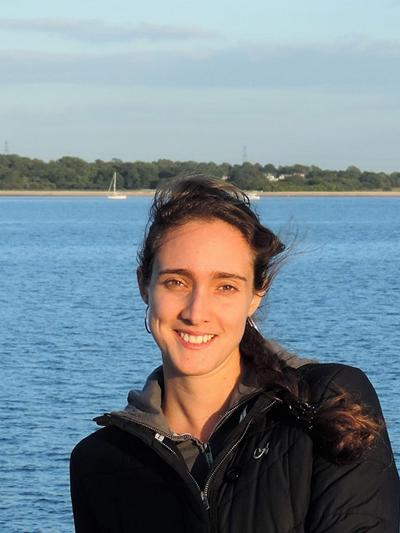Ms Lina M Zapata Restrepo B.Sc. (Hons), M.Sc. (Hons)
Postgraduate research student

- Related links
- Personal homepage
Lina M Zapata is Postgraduate research student within Engineering and Physical Sciences (Centre for Environmental Science) at the University of Southampton.
I am a Biologist with a background in environmental research, specifically carrying out environmental studies involving genetic toxicology, environmental mutagenesis, ecotoxicology, analysis of environmental contamination, and In vivo and vitro methods for studying the effects of exposure to anthropogenic and other naturally occurring chemicals in the environment.
After my undergraduate study, I worked as a researcher in Environmental Modeling and Management Research Group –GAIA (University of Antioquia) in a series of projects using genotoxicity biomarkers in the assessment of pollution effects in fish (Oreochromis niloticus), turtles (Trahcemys callirostris) and human samples.
I completed a M.Sc. in Biology at the University of Antioquia (Colombia). During this degree, I developed a Research Project based on Trachemys callirostris as a biomonitor for mercury contamination and its genotoxic effects in areas impacted by mining activities in Colombia. This project was executed in a collaboration between the Environmental Modeling and Management Research Group –GAIA- and the Herpetological Group of Antioquia –GHA- under the supervision of Jaime A. Palacio Baena, Brian C. Bock and Luz Y. Jimenez.
After my Master study, I participated as a co-principal researcher in a project exploring the genotoxic and epigenetic effects of particulate matter samples at six sites of Aburrá Valey - Antioquia and as a research assistant in a long-term ecological monitoring programme on neotropical otter (Lontra longicaudis) populations in the area of influence of the reservoir Porce III - Antioquia.
Laboratory-based in vitro and in vivo studies have become an important approach used to understand the consequences of environmental exposure to different pollutants. However, understand the effect of environmental pollution on living organisms and natural populations requires in situ studies to examine the current conditions where they inhabit. All these methods for testing and understanding the potential effect of certain compound (or a complex mixture of pollutants) are widely used in environmental monitoring studies. In combination experience with these methods, my degrees and participation in different projects have laid the motivation and capacities for doing my current PhD project under the supervision of Dr. Malcolm Hudson, Prof. Ian Williams, Dr. Chris Hauton and Dr. Antony Jensen.